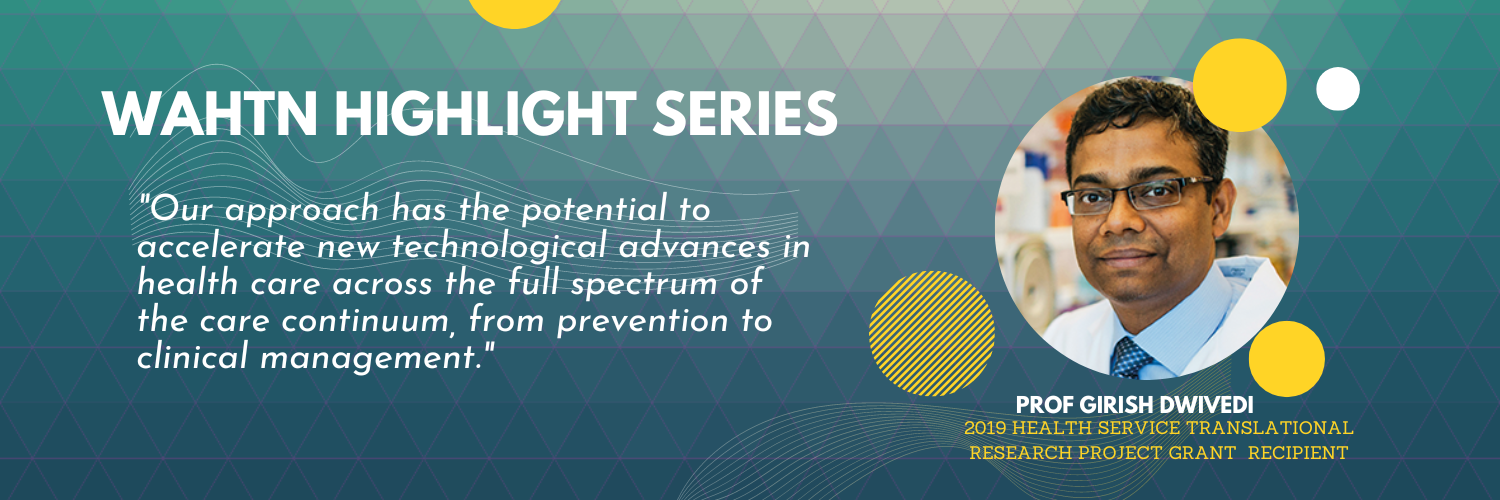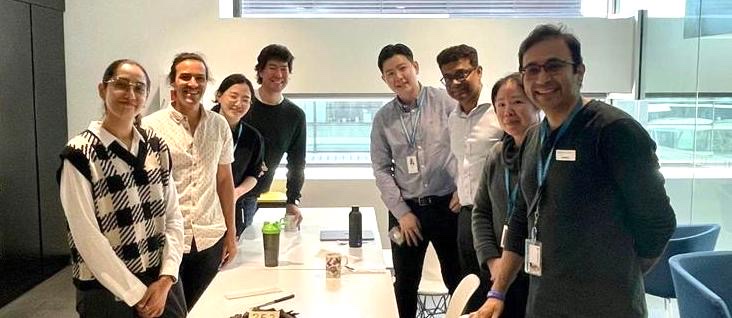
Professor Girish Dwivedi, 2019 Health Service Translational Research Project grant recipient
Professor Girish Dwivedi of the South Metropolitan Health Service, the Harry Perkins Institute of Medical Research and the University of Western Australia, explored the potential of Artificial Intelligence (AI) in medicine as one of the recipients of HSTRP funding in 2019.
His project, “High Performance Medicine through Artificial Intelligence in the Emergency Department”, aims to develop an AI-driven system that will give a personalised rating of the appropriateness of various advanced cardiovascular investigations for patients who have presented to the emergency department with chest pain.
After some initial delays due to COVID-19, the project is back on track with PhD students and early career researchers on board.
Girish and the project team – a diverse and multidisciplinary group of clinically active researchers – aim to develop advanced AI-driven clinical decision-making tools with the objective of reducing unwarranted variation in clinical care and outcome.

“Investigations are an essential component of patient care, and many patients who present to the emergency department with chest pain will undergo advanced cardiovascular imaging. There are multiple investigation modalities available, each with their unique strengths and weaknesses. The decision on which cardiovascular investigation is most appropriate for the patient has become increasingly complex. There is growing recognition that there is significant variation in investigation practices, with associated patient harm, healthcare waste and economic cost,” Girish shared.
Cardiac exercise stress testing offers a non-invasive approach in the management of patients with suspected coronary artery disease. However, up to one-third of exercise stress test results are either inconclusive or non-diagnostic, which results in significant resource wastage. The AI system developed by the research team using demographic and pre-test clinical information can accurately predict exercise stress test results and could be used to identify patients who would have? inconclusive or non-diagnostic results beforehand. “The proposed system could thus be used as a personalised decision support tool by clinicians for optimising the diagnostic test selection strategy for heart disease patients, which would reduce healthcare expenditure by reducing non-diagnostic or inconclusive tests”.
Appropriate antithrombotic (blood thinners) therapy for patients with atrial fibrillation requires assessment of stroke and bleeding risks. As part of the project, the investigators developed AI models that outperformed the existing clinical risk stratification scores for predicting the risk of major bleeding and death in atrial fibrillation patients. “Once validated in other studies, this has the potential to assess the utility as well as the risk with blood thinners in patients with atrial fibrillation, one of the most common arrhythmias seen in clinical practice”.
The research team also studied Australia’s contribution to AI research in medicine, performed qualitative evaluation of Australian and New Zealand emergency doctors’ attitudes towards AI in emergency medicine, and health consumers’ attitudes towards AI in healthcare. “The results are being analysed and will be shared with relevant stake holders to promote knowledge translation”.
Recently, Girish’s team at UWA has received $896,606 AUD through a Medical Research Future Fund Frontiers in Health grant to develop a tool to better predict the risk of coronary heart disease from heart computed tomography (CT) scans. “Our AI-based risk prediction system will identify patients at risk of heart attack and also those who would most benefit from treatment,” he said.
To stay updated with his current research or achievements, you can find Girish at Perkins and UWA
Subscribe to keep up-to-date with WAHTN news, events, and funding opportunities.
WAHTN Media and Communications – Hannah Vu (08 6151 0919)
